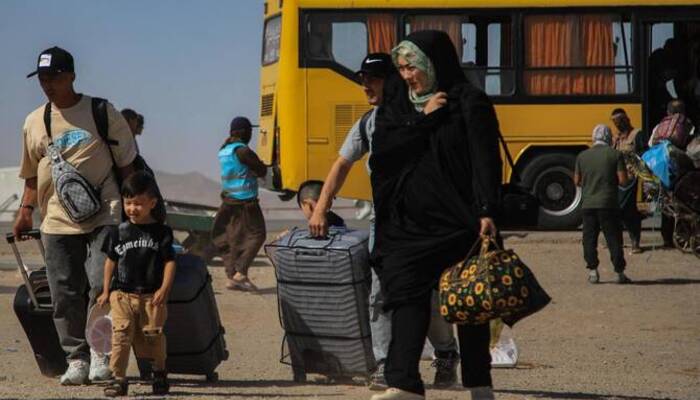A recent UN report has raised alarm over widespread rights violations faced by Afghan returnees under Taliban control. The report, published on July 24, 2025, outlines serious abuses such as arbitrary detention, torture, and threats targeting those forced to return from Iran and Pakistan. Vulnerable groups include women, girls, former government affiliates, journalists, and activists.
Systematic Violations Reported
The UN statement accompanying the report highlights a pattern of abuse by the Taliban against individuals considered “high risk.” These include those associated with the former Afghan government and its security forces, members of civil society, and people working in the media.
“These violations have included torture and ill-treatment, arbitrary arrest and detention, and threats to personal security,” the UN said.
Many returnees arrive in Afghanistan after being forcibly deported or pressured to leave Iran and Pakistan. For them, returning home often leads directly into the hands of Taliban authorities, who treat them with suspicion or hostility.
Increased Pressure on Iran and Pakistan
The report comes amid ongoing deportations of Afghan nationals by neighboring Iran and Pakistan. Both countries have tightened immigration enforcement over the past year, claiming economic strain and security concerns.
In recent months, images of Afghan refugees being dropped off at border points like Islam Qala in Herat Province have become routine. Buses from Iran offload hundreds of people each day, often without preparation or support waiting for them on the Afghan side.
Despite international outcry, Iran and Pakistan continue the removals, citing rising numbers of undocumented migrants and declining local resources. The UN has repeatedly urged both governments to halt the forced returns and ensure due process for all refugees.
Women and Girls Face the Harshest Reality
Among the most at risk are Afghan women and girls. Since the Taliban’s return to power in 2021, they have rolled back nearly all freedoms for women. Girls are banned from secondary and higher education, and most women are forbidden from working in public roles.
For those returning from abroad, the Taliban often view them as Westernized or rebellious. This perception increases the risk of punishment, isolation, or forced marriage.
The UN report emphasizes that many women deported from Pakistan and Iran had lived freely for years and now face unimaginable restrictions upon return.
Read: Russia and Ukraine Resume Peace Talks
Reprisals Against Former Government Affiliates
The Taliban have also targeted individuals linked to the previous government. Despite earlier promises of amnesty, reports continue to surface of arrests, disappearances, and even executions.
The UN found that these individuals, once deported back into Taliban territory, are often identified quickly through intelligence networks. They are then detained or harassed without formal charges or legal representation.
Media workers and civil society activists face a similar threat. Anyone seen as critical of the regime is vulnerable to harassment, surveillance, or worse.
Taliban Denials and Global Silence
The Taliban have denied the accusations in previous reports, claiming they are maintaining order and applying Islamic law fairly. They often dismiss international criticism as politically motivated.
Yet international observers and humanitarian groups say the facts are increasingly hard to ignore.
Despite mounting evidence, the global response remains muted. The international community, focused on other crises, has largely scaled back aid and diplomatic engagement with Afghanistan since the Taliban takeover.
Calls for Action
The UN is calling on all countries to immediately stop deporting Afghans until a safe and fair process can be ensured. They urge Iran and Pakistan to respect international refugee protections and offer temporary status to vulnerable individuals.
Meanwhile, the Taliban are being asked to cease violations and allow international monitoring of returnee treatment.
Human rights advocates argue that without strong international pressure, the situation for Afghan returnees will only worsen. The report serves as a stark reminder of the human cost of forced returns and unchecked authoritarian rule.
Follow us on Instagram, YouTube, Facebook,, X and TikTok for latest updates
